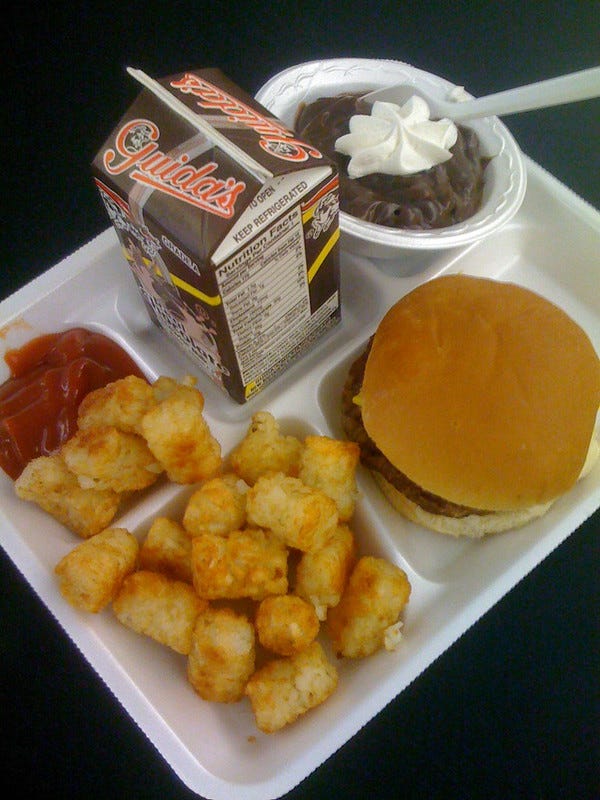High school seniors should not read Toni Morrison’s “Beloved” without parental permission, but eighth graders can be put to work in restaurant kitchens or meatpacking facilities without it. Parents must be informed by the school if their child identifies as transgender, but parents cannot ask the school to identify their children as they wish. Kids can’t discuss periods until middle school, but if they get pregnant at any age, they must carry a baby to term or into mortal danger.
These and other contradictions of GOP rhetoric and policies around schools and children — and the so-called parents rights movement used to justify them — have some reasonably asking which parents they are talking about.
Looking for consistency can be a fool’s errand given that the far right dominating the GOP does not demand it of itself. Since the Trump Administration sent heads spinning in a flood of lies, contradictions, and hypocrisies, I’ve been tapping this sign, a graphic from a 2016 Rand report on the type of Russian propaganda that the American right has since embraced:
Yet connections can sometimes be found and meaning made by pursuing questions like Piper’s. When the GOP calls for parents’ rights and for the protection of children, who and what are they protecting?
A Twitter thread last week from “National Review” writer Dan McLaughlin points toward answers. In the thread, he responds to a tweet comparing one state’s expansion of free lunch to all children and other states loosening their child labor laws. It’s hard to nutshell because its many points came double-wrapped in hyperbole and deep-fried in hysteria, but here’s a go: Feeding children is the responsibility of parents, not schools. Progressives don’t care that providing food in schools costs taxpayers money. Progressives want to feed all kids because then the government has money they can withhold to take away good parents’ rights along with bad parents’ responsibilities. Also: Don’t say I’m being inconsistent as a pro-lifer when parents who don’t feed their own children are like frustrated abortionists. And: Children should work because if they don’t, they won’t grow up.


Among other things, McLaughlin is making an argument against public education. Like the lunches he doesn’t think all kids should get for free, the school buildings that students enter daily — and the roof over them and the heat in them, and the bathroom facilities, and the teachers and counselors and nurses, and the technology and desks and books and supplies, and the gym and playgrounds — are all paid for by taxpayers whether those students come from low income households or high income households. (Related reco: Jennifer Berkshire and Jack Schneider in “The Nation” recently connected GOP efforts to deconstruct public education and their loosening of child labor laws.)
McLaughlin is so mad that some parents are financially strapped and convinced it’s because they don’t work, he appears eager to work their presumed sins out of their children. The problem as he defines it is that poor adults are acting like children, so the solution is to make poor kids act like adults, compressing their childhood.
To be fair, McLaughlin isn’t alone in holding Poor Law-era attitudes or putting forth Dickensian proposals; others, including Idaho State Representative Ron Mendive, think school kids should have to sing for their supper. But his rant helped me see that GOP rhetoric and policy around children should lead us to ask another question — “Who gets to be a child?” — because some young people are viewed as vulnerable and deserving of protection and others are not.
In schools, Black girls often don’t get to be children. As A. Rochaun Meadows-Fernandez explained in “The New York Times,” as early as preschool, they are subject to “adultification,” being treated as more grown-up than they are, resulting in less nurturing and support and more punishment and responsibility. Black boys also are seen as more adult, less innocent, and more responsible for their actions. This puts them in greater physical danger and has devastating consequences in the justice system. A recent expose revealed migrant children are being worked like adults in dangerous workplaces; loosening child labor laws can make it easier for children like them to be trafficked. LGBTQ+ youth are presented by the right as a threat to other children’s innocence when more than 80% of them report being harassed or assaulted at school. Meanwhile, the right is banning books about kids like these (and their history and their experiences) as a purportedly protective act.


So, according to the GOP, who gets to be a child? Who gets protection? It would appear to be a small group of deserving young people indeed, made smaller by the Dobbs decision that will turn more children into parents — including some whose vulnerability was already exploited by abusive adults.
Most believe the group is much larger. UNICEF keeps it simple in the report from its Convention on the Rights of the Child: anyone under 18 is a child, deserving of the many rights due children.
One reason for the contradictions in GOP rhetoric and policy around schools and children is that there seems to be no objective definition of “child” driving them. To the politicians and pundits on the far right, no person is more vulnerable or more powerful than others by virtue of their age alone. There are just persons subjectively deserving and undeserving of protection. And that is a dangerous thing.







